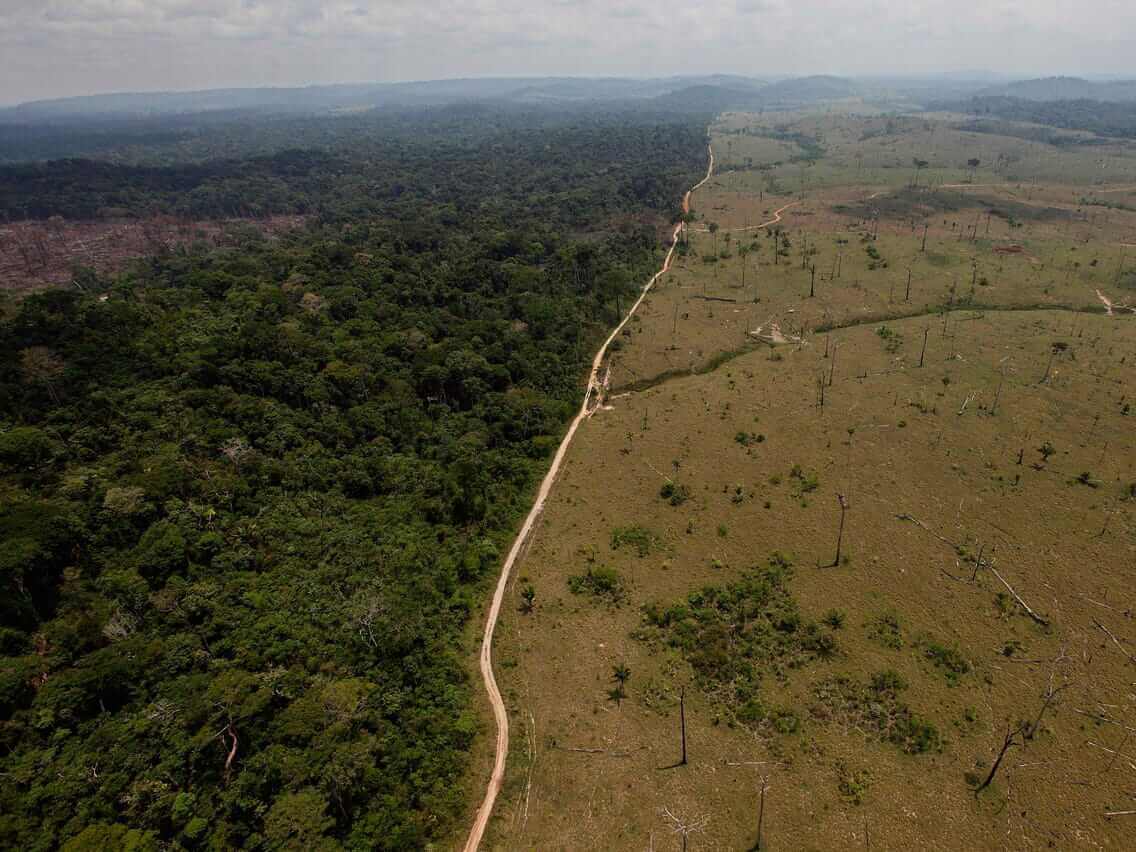A group of 29 companies, the vast majority of which are European, sent a joint letter to Brazilian ambassadors in their respective countries in which they threaten to divest from beef producers, grains traders, and government bonds if the Brazilian government does not adequately commit to tackling deforestation in the Amazon rainforest. The companies, which include Legal & General Investment Management Ltd, Sumitomo Mitsui Trust Asset Management, and NN Investment Partners, hold a combined total of over $3.75 trillion in assets. The letter has been sent to the Brazilian embassies in Norway, Sweden, France, Denmark, Netherlands, the United States (US), and the United Kingdom (UK)
The letter decries the “dismantling of environmental and human rights policies”, saying that it is “creating widespread uncertainty about the conditions for investing in or providing financial services to Brazil”.
In 2019, the first year of Brazilian President Jair Bolsonaro’s rule, Amazon deforestation rose by 29% to an 11 year high, severely threatening both the environment and the 900,000 Indigenous peoples of Brazil. In response, he said deforestation is part of the “cultural” fabric of Brazil and will “never stop”. When the Amazon fires were at their peak in 2019, he refuted data from the government space agency Inpe and then dismissed the agency’s chief. This year, the deforestation rate between January and May was 22% higher than during the same period in 2019.
Such actions and policies drove some European politicians to say they would vote against the ratification of a free-trade agreement (FTA) between the European Union (EU) and the Mercosur customs union, which included Brazil. Ultimately, the deal was signed last June; however, it is clear that the undercurrents of opposition to Bolsonaro’s environmental degradation remain.
Accordingly, the letter reads: “Considering increasing deforestation rates in Brazil, we are concerned that companies exposed to potential deforestation in their Brazilian operations and supply chains will face increasing difficulty accessing international markets. Brazilian sovereign bonds are also likely to be deemed high risk if deforestation continue”.
Bolsonaro has thus far shrugged off diplomatic pressure and criticism with his usual reckless abandon. Domestically, he has responded to criticism of his COVID-19 response by putting a top to the publication of data on coronavirus deaths and infections. It remains to be seen how he will respond to this latest criticism of his environmental policymaking. However, his strongman form of leadership is likely to see this as an affront to Brazil’s sovereignty and cause him to double down on the relaxation of environmental regulations, to the detriment of the Amazon, Indigenous communities, and to the global ecosystem at large.
Multiple Companies Threaten to Divest From Brazil Over Amazon Rainforest Deforestation
They have threatened to divest from beef producers, grains traders, and government bonds.
June 23, 2020

IMAGE SOURCE: ANDRE PENNER / AP
